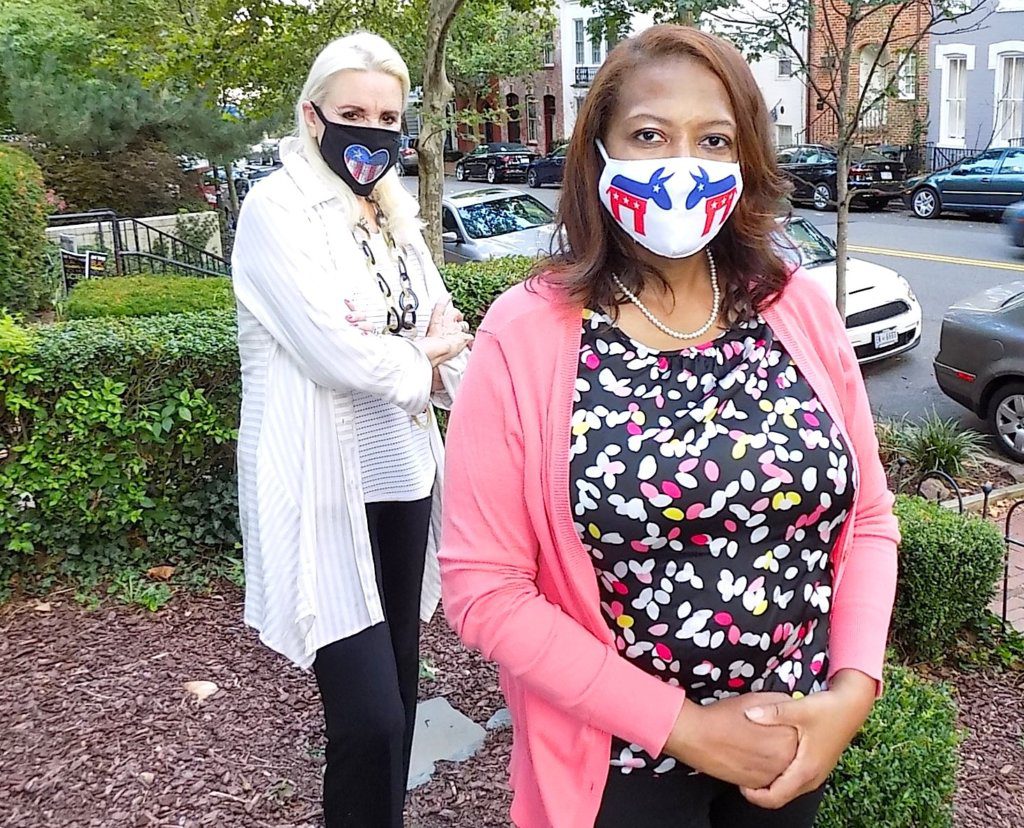D.C.’s Democratic Delegates Go Virtual
By • August 10, 2020 0 1226

Nothing is the same in this year of the coronavirus pandemic. That goes for the presidential election — from the way voters cast their spring primary and November general election ballots to the summer conventions that determine each party’s presidential candidate.
“To say the nomination conventions will be different this year is a wild understatement,” Charles Wilson, chairman of D.C.’s Democratic party delegation, told The Georgetowner.
The quadrennial Democratic convention was “the Super Bowl of the active Democratic party experience,” Wilson said. “It was full of great anticipation, participation and excitement.”
“Till now, nomination conventions were four wonderful days of caucuses, great speeches, demonstrations often in costumes, events, all-night parties and the final exciting night when the chosen candidate accepted the nomination in front of tens of thousands of wildly enthusiastic selected delegates from every U.S. state and territory,” recalled Christine Warnke, a global business development executive and one of 13 delegates elected to represent District Democrats.
That’s what was planned for this year as well — to take place in Milwaukee from July 13 to 16 — and Warnke had been looking forward to it all. But that was before COVID-19.
Now, this year, the entire convention will be held virtually from Aug. 17 to 20. Last week, Joe Biden, the presumptive nominee, announced he would not even go to Milwaukee. That has left the Democratic National Committee and state party delegations scrambling to make plans in their cities and regions for activities that will enthuse party members before Biden’s nomination acceptance speech.
“We are looking at having some great speakers and watch parties with other state delegations,” said Wilson. “Of course, our delegation will push the cause of statehood among all delegates. It’s included in the party platform, coincidentally on page 51. And we are organizing a possible giant drive-in watch party the final night in a sports area that the public can attend and watch.”
One thing hasn’t changed, however: the nomination doesn’t go to the candidate with the most votes. To win the nomination on the first ballot, a Democratic candidate must receive support from a majority of the pledged delegates representing each state and the District: at least 1,991 of the total 3,979.
“It’s my first convention as a delegate and I’m excited,” said Monica Roaché, a former Georgetown-Burleith advisory neighborhood commissioner. She and Warnke were the top vote-getters of the 13 delegates selected by District Democrats in a party election in June.
The D.C. delegation consists of some 50 delegates. Besides the 13 elected ones and other pledged delegates, there are unpledged superdelegates (also known as automatic delegates), including former Ward 2 District Council member Jack Evans, Rep. Eleanor Holmes Norton and Mayor Muriel Bowser, who is expected to announce Joe Biden as D.C.’s nominee on the virtual convention’s final night.

